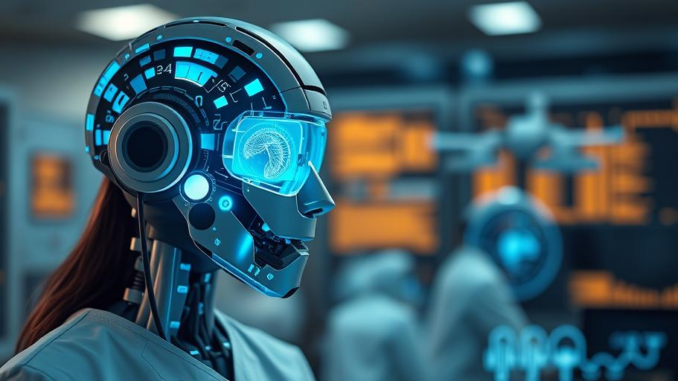
Summary
Korea University Medical Center (KUMC) is partnering with Royal Philips to develop AI diagnostic tools for neurological and cardiovascular diseases. This five-year collaboration aims to create a smart healthcare system for early disease detection and personalized treatments. This exciting development has the potential to revolutionize how we diagnose and treat these conditions.
** Main Story**
So, Korea University Medical Center (KUMC) is teaming up with Philips to really shake things up in how we diagnose brain and heart problems, and honestly, it’s pretty exciting. They’re diving headfirst into AI to create some seriously smart diagnostic tools. This isn’t just a small project either; we’re talking about a five-year commitment! It’s a big deal, showing how much faith they have in AI’s potential in medicine.
Building a Smarter System
At the heart of it all is building a, what they’re calling, ‘smart healthcare system’. But what does that even mean? Well, think of it as leveraging big data and AI to spot brain and heart issues super early, like, way before they become major problems. You know how crucial early detection is. It can literally be a lifesaver. The system is designed to munch through mountains of patient info—scans, genetic stuff, lifestyle habits – basically, everything. From there, it’ll find patterns and predict who’s at risk, but it won’t stop there. It’ll also tailor treatment plans; think personalized medicine taken to the next level. Imagine therapies tweaked to fit each patient’s unique needs for max effectivness!
The Power of Partnerships
This collab is a match made in heaven. You’ve got KUMC’s deep medical expertise and Philips’ tech wizardry. Professor Park Hong-Seok from KUMC is super optimistic. He thinks this combo will speed up the development of these personalized diagnostics, and I think he’s right. Increasingly, we’re seeing academic institutions and tech companies joining forces to push healthcare forward, and this is a fantastic example.
KUMC isn’t new to the AI game either, you know. They’ve been playing around with large language models (LLMs) and even built a deep learning AI to diagnose acute heart failure early. Their MedAI Lab is doing some serious research using AI and biomedical data. These initiatives really put them at the forefront of AI-powered healthcare.
Healthcare’s AI-Driven Future
This KUMC-Philips partnership is a glimpse into the future of medicine. I mean, AI has the potential to change everything – diagnosis, treatment, you name it. By catching diseases earlier and personalizing treatments, AI could seriously improve patient outcomes. And while it’s still early days, the potential is massive. We’re talking about a future where AI helps us prevent diseases, diagnose them more accurately, and treat them more effectively. Who wouldn’t want that?
Think about it, though, there’s still a way to go. What are the ethical implications? How do we ensure fairness and avoid bias in these algorithms? What is the plan to protect sensitive patient data? These are questions we need to answer as AI becomes more integrated into healthcare. That said, the progress is undeniable.
Frankly, the work being done by KUMC and Philips is a significant step towards making this vision a reality. The development of AI tools for diagnosing complex conditions, like those affecting the brain and heart, shows a snapshot of what’s possible. As research continues, and the technology gets even more sophisticated, we can expect a new chapter in healthcare, driven by AI. An era of greater precision and improved health outcomes, for everyone. It’s an exciting prospect, isn’t it?


Be the first to comment